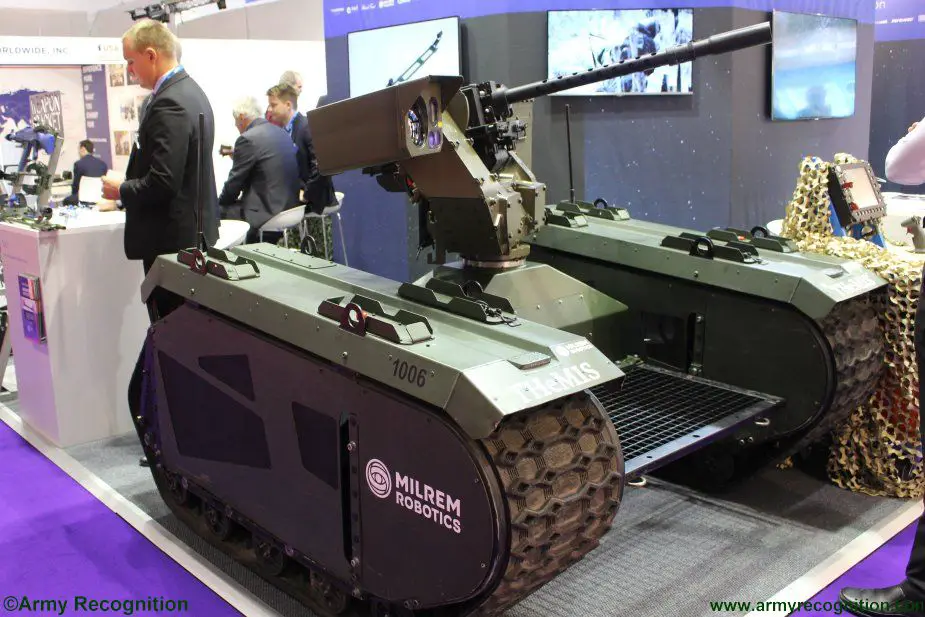Breaking news
Milrem's TITAN SENTRY UGV spotlighted at DSEi 2017.
The Estonian defence solutions provider Milrem Robotics is expanding the capabilities of their THeMIS unmanned ground vehicle to equip soldiers with several new robotic systems for defence applications. One of the company’s aims is to enhance warfighters’ situational awareness. To that end several systems are in development. One of them – the TITAN SENTRY – is exhibited this week during the Defence and Security Exhibition DSEI 2017.

Milrem's TITAN SENTRY UGV
Developed together with QinetiQ the TITAN SENTRY concept features the THeMIS unmanned ground vehicle, designed by Milrem Robotics and a suite of sensor systems integrated by QinetiQ. TITAN SENTRY is an exploration of manned/unmanned teaming where the cognitive burden on the warfighter is vastly reduced through the fusion of sensor data and advanced battlespace management systems. Intended to operate in high threat areas, it can identify and fix enemy locations whilst minimising the risk of casualties. This unit is on display at the QinetiQ stand S2-550.
Milrem Robotics has also started developing an unmanned system that combines the THeMIS with aerial drones. Working with Estonian UAV manufacturer Eli, a drone nest is being developed and with Threod Systems a tethered multirotor UAV integration project has begun.
These systems can be deployed in high risk situations or remote areas where oversight of a larger area is required without the need of a human operator to be present.
“Remotely controlled robotic systems that keep our soldiers in a safe distance are crucial to the next generation of battlefield effects that will give asymmetric advantage to the warfighter,” explained Kuldar Väärsi, the CEO of Milrem Robotics.
In support of Milrem Robotics’ integration projects, the company has just released the second part of the Digital Infantry Battlefield Solution (DIBS) study, focusing on the present and future use of robotic warfare systems. Put together by an academic study group for robotic warfare, DIBS2 gives an overview how military forces in USA, Ukraine, Poland and Russia are deploying unmanned ground systems but also focuses on ConOps and legal issues of using smart unmanned systems.



















